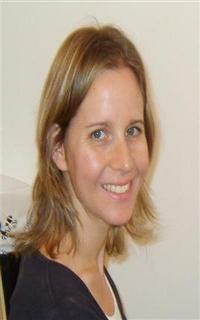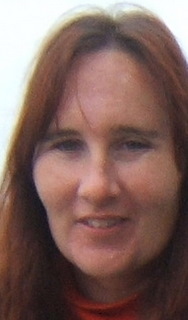| Pages in topic: [1 2] > |
Poll: What's your strongest specialization? Thread poster: ProZ.com Staff
|
|---|
| |
Peter Manda (X)
Local time: 00:59
German to English
+ ...
| specialization? | Apr 1, 2008 |
The idea of specialization troubles me as much as the idea that I could be better translator with a software program. Much more difficult for me is capturing linguistic nuance. While I have a good sense for British English, I only spent about two weeks in Australia and just a little bit more time in Canada to know that translating into specifically those English "dialects" is a task I couldn't take on ...
If someone has mastered a language, then any translation with a good dictionar... See more The idea of specialization troubles me as much as the idea that I could be better translator with a software program. Much more difficult for me is capturing linguistic nuance. While I have a good sense for British English, I only spent about two weeks in Australia and just a little bit more time in Canada to know that translating into specifically those English "dialects" is a task I couldn't take on ...
If someone has mastered a language, then any translation with a good dictionary is possible. Anything less is a sign of amateurism ... (hah! I can see lots of responses on this attitude ...:-). This was the case with me and Spanish, for example, where I realized after a few translations that even though I was translating correctly, outside of the legal field (my "specialization") I was not translating effectively - thus, I was being an amateur. Which is why I stick with German to English translations only at the moment (and generally regardless of specialization but definitely more focused on International/US english).
My point; we can restrict our work to a certain area, but if we can't translate outside our specialty then we are not carrying the full linguistic nuance with us and are thus possibly doing our outsourcers/clients a disservice. ▲ Collapse
| | | |
Tatty 
Local time: 06:59
Spanish to English
+ ...
Let's see if I can make out what you are saying - that we should be linguists in addition to having a specialism. I think that what we should all aspire to too, if I have understood you correctly.
| | | |
Keren Terret
Israel
Local time: 07:59
Hebrew to English
+ ...
Although my educational background is in Life and Social Sciences and I market my main area of expertise in Medical and Scientific translations, the majority of my work is actually translating Marketing material. Insidiously the market has actually shaped my "strongest" specialization.
| | |
|
|
|
Joan Berglund 
United States
Local time: 00:59
Member (2008)
French to English
| The market does that | Apr 1, 2008 |
Keren Terret wrote:
Although my educational background is in Life and Social Sciences and I market my main area of expertise in Medical and Scientific translations, the majority of my work is actually translating Marketing material. Insidiously the market has actually shaped my "strongest" specialization.
I know, I really prefer to do medical and biotech, but there is so much legal and IT work out there, you would almost think I wanted to specialize in it looking at my project history. It has come to the point that I am actually considering getting a certificate in IT, but I will be kicking and screaming the whole time.
| | | |
Rosa Cabral 
United States
Local time: 00:59
English to Italian
+ ...
| science and medical | Apr 1, 2008 |
I try to stick only to science and medical and a couple technical areas. Unfortunately one cannot always get something in one's field. However, there are certain areas I wouldn't touch with a ten foot pole! (eg legal, IT, train and car related, machinery, just to name a few). I prefer not to do anything than feel out of my comfort zone. I occasionally do marketing but usually wait for something in my areas of expertise. My main reasoning is that other areas use terminolgy that is completel... See more I try to stick only to science and medical and a couple technical areas. Unfortunately one cannot always get something in one's field. However, there are certain areas I wouldn't touch with a ten foot pole! (eg legal, IT, train and car related, machinery, just to name a few). I prefer not to do anything than feel out of my comfort zone. I occasionally do marketing but usually wait for something in my areas of expertise. My main reasoning is that other areas use terminolgy that is completely foreign from my experiences and would prefer not doing something substandard.
If there are dry periods (it is usually feast or famine for me) I just spend time reading, study and making wordlists from old translations in excel and write the equivalent.
Or I go for a walk or to the gym and relax and yes, clean the house!!!! ▲ Collapse
| | | |
neilmac
Spain
Local time: 06:59
Spanish to English
+ ...
I really don't want to seem churlish but I think this is rather a pointless poll/question, similar to "what's your favourite film/book/best friend" etc, and I don't really understand what the reason for asking is.
If I had to say I had a speciality it would be something like "randomness" or "multi-tasking".
Lately I've been doing a lot of marketing stuff, mostly agricultural, which is so easy and familiar to me by now that it's like working on automatic pilot. I like doing it because... See more I really don't want to seem churlish but I think this is rather a pointless poll/question, similar to "what's your favourite film/book/best friend" etc, and I don't really understand what the reason for asking is.
If I had to say I had a speciality it would be something like "randomness" or "multi-tasking".
Lately I've been doing a lot of marketing stuff, mostly agricultural, which is so easy and familiar to me by now that it's like working on automatic pilot. I like doing it because it's easy. Does this mean it's my "strongest"?
I also enjoy doing medical and pharma/bio texts, I'm told I'm good at them - is that my forte, then?
I'm currently doing EDI software strings - I hate them and can't use any CAT tools on these particular ones - yet I'm told I'm an expert in this relatively new field - so is this my number one?
I do academic and political texts too and the same holds for these areas... I could go on like this for ages.
What I mean is, there are some movies, books and films I really like, and I have quite a few friends, some of whom I think are more wonderful or less irritating/hung up than others - so, which should I single out for the honour of "best"?
I think believing in absolutes like "best" and "worst" is like skating on thin ice in our profession. Take for example the proz translation contests - I might like one more than another because of the use of some turn of phrase, and vote accordingly. That doesn't necessarily mean it IS the "best", just the one that I happen to prefer more than the others, which may also be good.
Perhaps it has to do with the difference between US education, usually focused on specialization, compared with the European education systems, which as far as I remember used to have a traditionally broader base.
[Edited at 2008-04-02 20:14] ▲ Collapse
| | | |
| acquired specialization | Apr 2, 2008 |
Keren Terret wrote:
Although my educational background is in Life and Social Sciences and I market my main area of expertise in Medical and Scientific translations, the majority of my work is actually translating Marketing material. Insidiously the market has actually shaped my "strongest" specialization.
That's becoming somewhat the case with me, as well-my educational background and non-translation work history is in the social sciences and humanities, but I wind up doing a lot of legal contracts and construction/civil engineering work. I actually enjoy doing the construction/engineering stuff--my husband is in the trades, and it makes me feel like all those years of listening to him natter on about ductwork and wiring and watching Extreme Engineering and Build It Bigger has had some payoff. It's kind of funny, because I feel quite comfortable with the terminology of the field now, but I still don't quite grasp the physics of how it all works, and I would no more trust myself to wire a lightswitch than I would to perform a surgical operation.
| | |
|
|
|
| I do appreciate this poll | Apr 2, 2008 |
I think it is important to discuss what "specialization" means to us.
While I agree that all of us are able to do general translation and sometimes just cannot refuse some subjects we are not quite familiar with, I strongly believe in sticking to those fields where we feel most comfortable.
I answered "Business and Finance." However, given the chance, I would have chosen business, finance AND contracts. That is because I spent seventeen years translating for my bosses i... See more I think it is important to discuss what "specialization" means to us.
While I agree that all of us are able to do general translation and sometimes just cannot refuse some subjects we are not quite familiar with, I strongly believe in sticking to those fields where we feel most comfortable.
I answered "Business and Finance." However, given the chance, I would have chosen business, finance AND contracts. That is because I spent seventeen years translating for my bosses in different companies.
A "specialty" is a special feature or characteristic; a peculiarity. A strong point. A specialization is a road you have come to know so well you can walk it confidently.
So here is my advice for young colleagues: SPECIALIZE! ▲ Collapse
| | | |
| Medical and science | Apr 2, 2008 |
Specifically, medical/pharmaceutical and chemistry. I can't agree with Peter at all: specialising makes sense both for me professionally (greater familiarity with subject matter and therefore maximised output) and for my clients (knowledge of accepted terminology, understanding of subject matter leading to more confident (and less literal) translation, etc.)
While knowing how to use a good dictionary - and more importantly, internet research - are essential for us all, I really coul... See more Specifically, medical/pharmaceutical and chemistry. I can't agree with Peter at all: specialising makes sense both for me professionally (greater familiarity with subject matter and therefore maximised output) and for my clients (knowledge of accepted terminology, understanding of subject matter leading to more confident (and less literal) translation, etc.)
While knowing how to use a good dictionary - and more importantly, internet research - are essential for us all, I really couldn't agree that they suffice in themselves to make you an "instant specialist" able to translate in any number of fields. If you don't have a thorough grounding in the subject matter, I don't see how you can possibly be sure if you're using the right term to describe a concept or you've really understood the source text. Take law, for example, where often a concept in one legal system just doesn't exist in another - how can you begin to convey its meaning unless you have a good understanding of both systems? Or cutting edge medical (or any other type of) research, where the authors may be coining the terms as they go along - and so you won't find them in any dictionary or even necessarily on line?
In any case, just the reduced output which can't fail to result from being a "jack of all trades" should in itself be a sufficient argument in favour of specialisation. Why waste time researching terms in an area I'm unfamiliar with when I could be getting on with a straightforward (for me) translation in my strongest area? This is not an academic question for me - I get offered more than enough work in my specialisations that I don't need to accept anything else.
[Edited at 2008-04-02 06:34] ▲ Collapse
| | | |
Attila Piróth 
France
Local time: 06:59
Member
English to Hungarian
+ ...
| Specialization! | Apr 2, 2008 |
Peter Manda wrote:
If someone has mastered a language, then any translation with a good dictionary is possible. Anything less is a sign of amateurism ... (hah! I can see lots of responses on this attitude ...:-).
Here is one:
I consider a field my specialty field if I do not only understand what is written but also why it is written. If I can spot shortcomings in the text, and propose useful corrections. If I can confidently edit the source text. (If some words were missing in the original I could confidently fill the gaps more or less off the top of my head.) So I can call physics my specialty field. On the other hand, I do not have the same confidence when I have to translate a licence agreement. If something is blatantly missing I will probably see it, and if the formulation is particularly obscure I will point it out to the agency. I can understand what exactly is written but not whether it is the best way to formulate it.
Attila
| | | |
Giles Watson 
Italy
Local time: 06:59
Italian to English
In memoriam | Specialising = more money + less stress | Apr 2, 2008 |
It works like this.
If you are a generalist, you frequently have to bid for translation work against other translators who will settle for a lower rate. Customers often have no real way of distinguishing your work from your competitors' and are likely to opt for whoever will do the job for least money.
If you specialise and are sufficiently visible, customers who appreciate the quality of your work will seek you out and, incidentally, treat you with more respect than ge... See more It works like this.
If you are a generalist, you frequently have to bid for translation work against other translators who will settle for a lower rate. Customers often have no real way of distinguishing your work from your competitors' and are likely to opt for whoever will do the job for least money.
If you specialise and are sufficiently visible, customers who appreciate the quality of your work will seek you out and, incidentally, treat you with more respect than generalists tend to receive. Since the customer is making the approach, you can decide the rate, and often the delivery date as well, because what matters to the client is quality.
In other words, specialising boosts your income and lowers your blood pressure.
FWIW
Giles ▲ Collapse
| | |
|
|
|
John Walsh 
Italy
Local time: 06:59
Italian to English
| Interesting poll | Apr 2, 2008 |
If someone has mastered a language, then any translation with a good dictionary is possible. Anything less is a sign of amateurism ...
My point; we can restrict our work to a certain area, but if we can't translate outside our specialty then we are not carrying the full linguistic nuance with us and are thus possibly doing our outsourcers/clients a disservice.
No specialisation? There are professional translators who don't specialise?
IMHO a good professional translator is one who specialises and he/she provides better service, higher quality and certainly earns more money (i.e. faster).
| | | |
| I could not agree more! | Apr 3, 2008 |
[quote]Marie-Hélène Hayles wrote:
"If you don't have a thorough grounding in the subject matter, I don't see how you can possibly be sure if you're using the right term to describe a concept or you've really understood the source text."
For some fields (like mine, which also happens to be Science) it would be a mistake to think that a good dictionary can bail you out. Understanding the source text is essential, as is knowing the current terminology in the target language.
Plus, as several pointed out before, specialization makes sense economically and in other ways.
[Edited at 2008-04-03 00:18]
| | | |
| Totally in favour of specialization | Apr 3, 2008 |
In addition to all the valid points made above on improved earnings and so on, I would add that if you limit your translation work to one field you can concentrate all your efforts on that one subject and become increasingly expert in your sector. Any time I spend researching for my translations is always well spent not only for that piece of work but also for future work. This also means that I can build up one specialized glossary that is really useful. To be honest I now feel reluctant to tak... See more In addition to all the valid points made above on improved earnings and so on, I would add that if you limit your translation work to one field you can concentrate all your efforts on that one subject and become increasingly expert in your sector. Any time I spend researching for my translations is always well spent not only for that piece of work but also for future work. This also means that I can build up one specialized glossary that is really useful. To be honest I now feel reluctant to take on work outside of my specialized field because I feel the effort is to a certain extent wasted from a terminological point of view. ▲ Collapse
| | | |
| Pages in topic: [1 2] > |



























